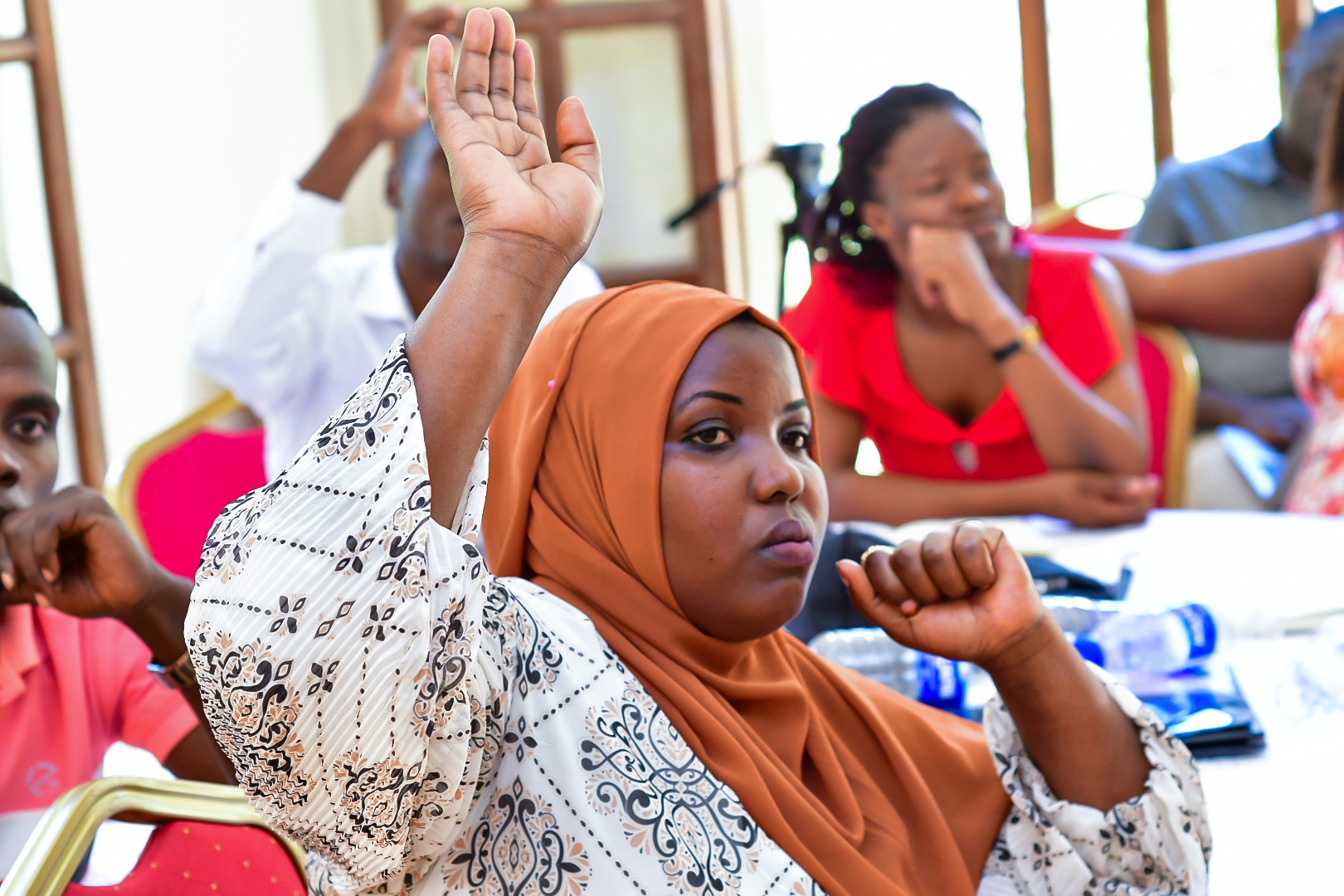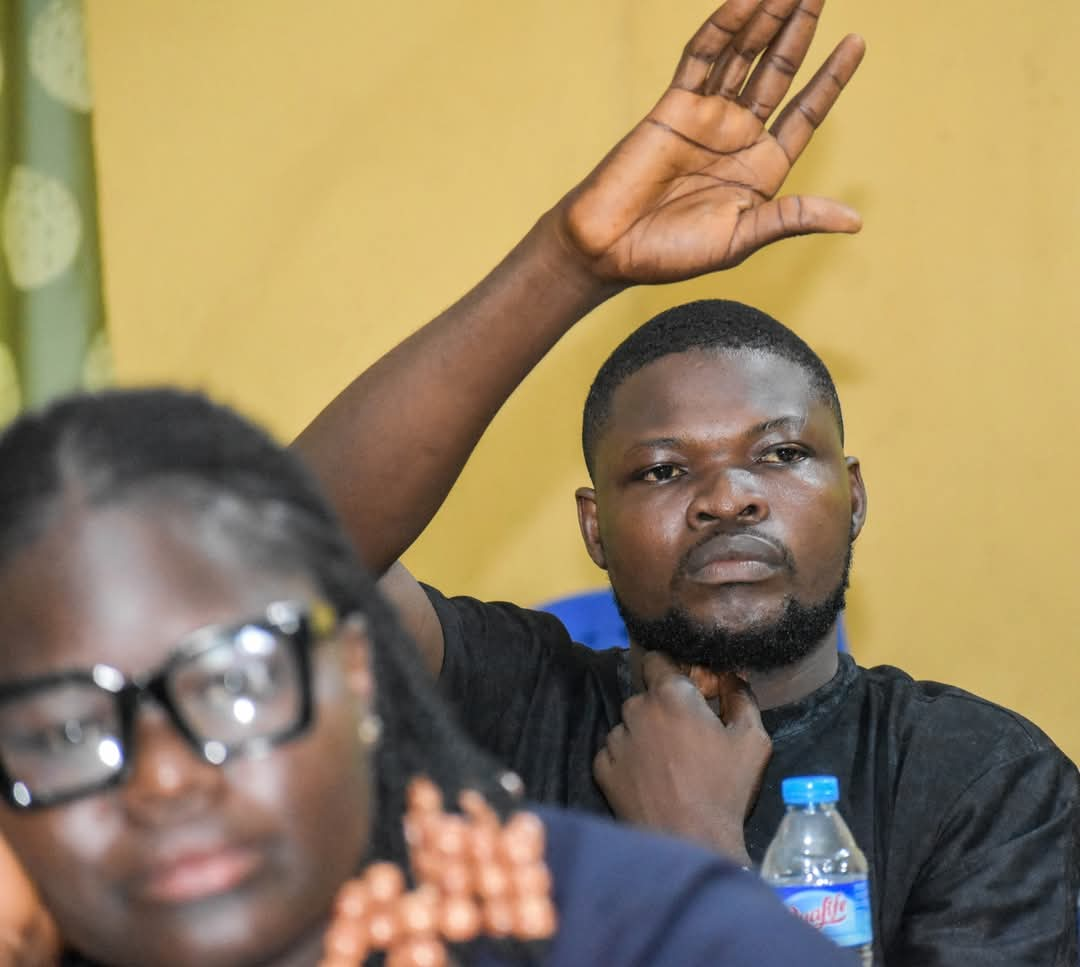#SoyParte: Supporting El Salvadorian youth for a peaceful and sustainable future
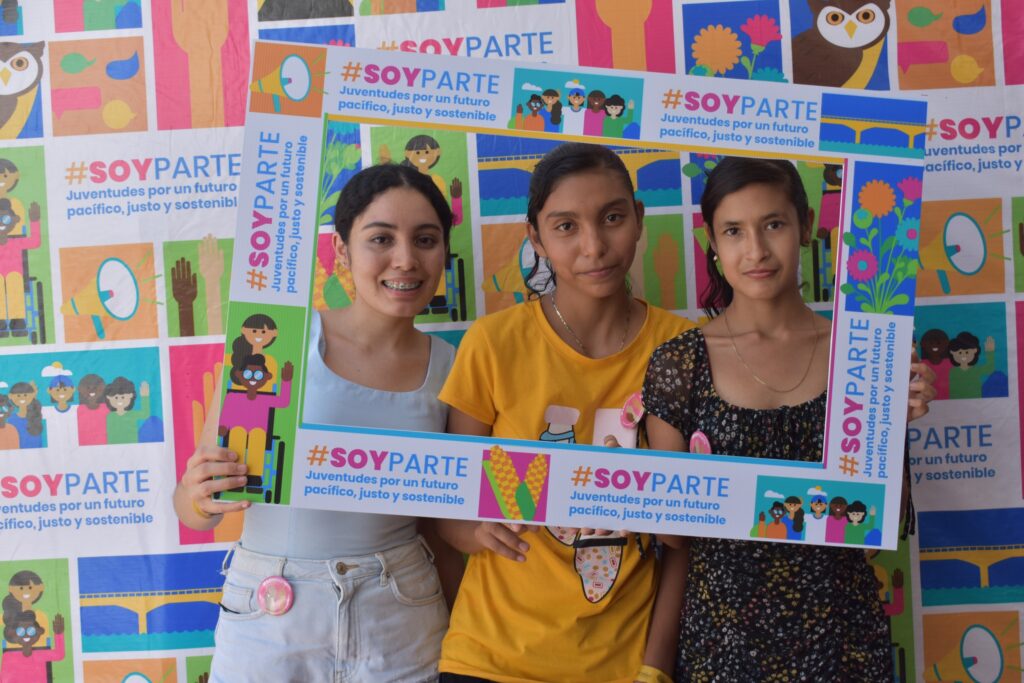
Harnessing the power and passion of young people is crucial if a country wants to lay the groundwork for a peaceful, just, and sustainable future. But this can only happen if young people from all backgrounds are equipped with the skills, knowledge, and networks to participate in the democratic and decision-making processes.
In 2021 and 2022, NIMD El Salvador worked with local and international partners to help make this goal a reality with the #SoyParte (“I Belong”) project, a 20-month initiative providing in-depth training, technical support, skills development, and networking opportunities to young people from diverse backgrounds.
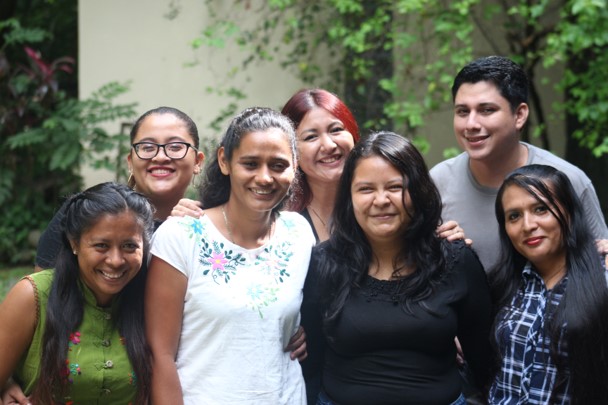
Dialogue as a tool for peacebuilding and advocacy
Working with United Nations agencies UNFPA and UNESCO, municipal government, and local organizations including the Feminist Collective for Local Development, #SoyParte reached more than 2,400 people in the municipalities of Tecoluca and Jiquilisco.
The objective was to promote the meaningful and effective participation of young people between 18-29 years old, in particular people from rural areas with high levels of poverty, environmental degradation, and unemployment.
“Policies attempting to address complex social, economic and environmental issues will only have an impact if they take on board the voices of the people most affected,” said Juan Meléndez, Executive Director of NIMD El Salvador.
“By providing training for young people in topics including leadership and dialogue, we foster awareness around democratic values and sustainable peacebuilding, amplify diverse voices, and create the space for dialogue with political actors.”
“An inclusive agenda for everyone”
NIMD El Salvador was a crucial partner in #SoyParte, running democracy education initiatives to help participants elevate their skills and understanding. These included a School of Leadership and the Culture of Peace, during which 154 young people developed their dialogue skills in person and another 407 participated virtually.
The students represented all sectors of society, with women accounting for more than half of the graduates and people from the LBGTQI+ community, indigenous groups, and young people with disabilities also honing their skills in these crucial areas.
“Developing the dialogue skills of under-represented groups equips people with the skills and confidence to participate in the political process, leading to a more inclusive agenda for everyone,” said Juan.
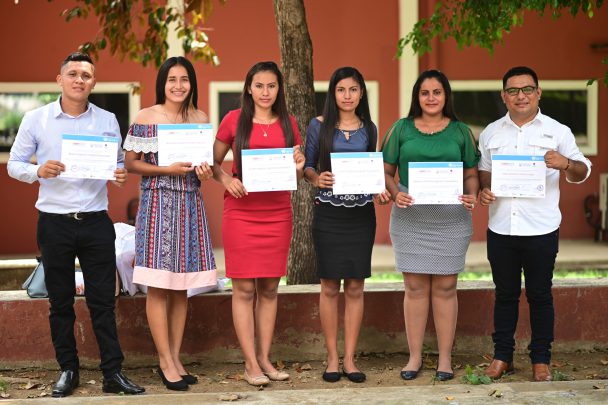
Other NIMD #SoyParte courses included communications strategy and digital advocacy, which trained 379 young people, and a course in information engineering for advocacy. Young people also had the opportunity to attend talks, workshops and trainings on issues as diverse as project management, positive masculinity, prevention of sexual harassment, gender approaches, the human right to water, and conflict negotiation.
Helping advocate for young people within the existing political structures is also key, and NIMD welcomed 60 municipal officials to seminars on public policies for youth.
A complex past laying the groundwork for future collaboration
Creating a legacy of dialogue takes on added importance in areas like Tecoluca and Jiquilisco, which have a rich and complex history. El Salvador experienced a long period of civil war, and these areas are home to ex-combatants from both sides of the conflict.
“Following the peace deal in 1992, these ex-combatants played a key role in rebuilding the social fabric and mending divides,” said Juan. “It is crucial that we keep that historic memory of collaboration and conflict resolution alive in the next generation, because it is a legacy of the sons and daughters of these ex-combatants.”
Today, the young generation face different challenges. The region is struggling with environmental degradation and water management issues wrought by the sugar cane monoculture. Formal work is hard to find, while exploitative labor is common. Problems with access to water lead to economic and health issues, and knock-on effects of crime and low levels of development.
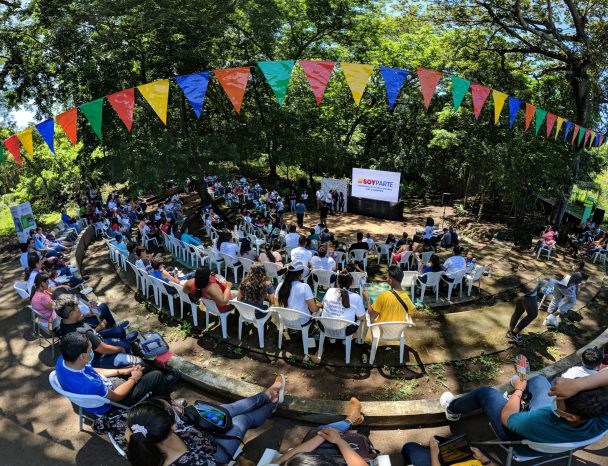
Creating the space for inclusive solutions
#SoyParte created the space for young people to discuss these issues and possible policy solutions with political and civil society actors. Youth roundtables, mentoring sessions, and dialogue platforms took place in Tecoluca and Jiquilisco, attended by municipal representatives including council members and the mayors of both municipalities.
“With the #SoyParte project, we were able to generate opportunities for real political advocacy by underrepresented groups through the development of intergenerational pacts between young people and local governments,” said Juan.
These dialogue and advocacy events produced policy proposals at the local and municipal level focused on development, sustainability, inclusion, and gender empowerment. Local government representatives committed to including these proposals in future public policies and to generate greater space for dialogue with young people.
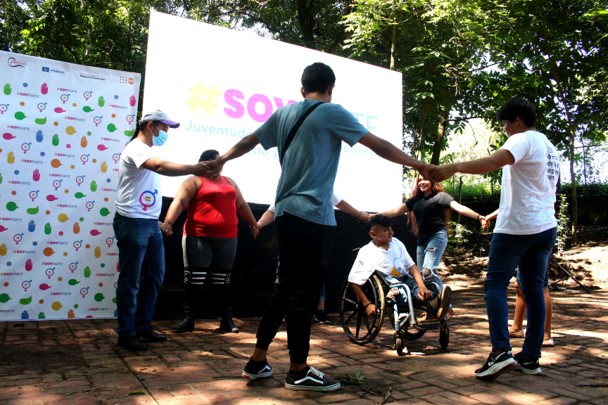
As well as the democracy- and dialogue-related training, #SoyParte participants attended other events including open days with Ministry of Health personnel to discuss chronic renal failure, a prevalent problem in the region because of sugarcane monoculture.
Building a common response
Together with UNFPA and local authorities, open days also addressed teenage pregnancies and reproductive health issues, opening sustainable communication channels in which parties learned to listen to each other to build common responses.
To ensure the lasting impact of the #SoyParte, participants formed Youth Political Advocacy Groups in each of the municipalities. These groups bring together existing youth-oriented civil society and advocacy groups to pool their resources to continue pressing for dialogue and inclusion in the political processes.
The #SoyParte initiative also established permanent safe public spaces for young people to meet to plan and develop proposals for improving their communities and generating innovative political advocacy.
“Within the framework of the #SoyParte project, NIMD is delighted to have contributed to promoting youth leadership and including more voices in decision-making processes,” said Juan. “Ultimately, initiatives like these generate more harmonious and just communities, laying the groundwork for a lasting and inclusive peace.”

